|
This article was originally published at www.handtohold.org It was Teddy Roosevelt who famously said, “Comparison is the thief of joy.” Psychologists estimate that 10% of our daily thoughts are comparisons. I would argue that this number seems a little low when it comes to parents.
When my twin pregnancy ended at 28 weeks with an emergency c-section and my babies were rushed to the NICU, I couldn’t help but compare my expectations and my reality. All of the dreams and plans I had for the birth of my twins were crushed. What I had imagined would never be. And if I’m being honest, in those first few days of NICU life, I had a hard time finding any joy. I had always planned on having professional maternity pictures taken of my pregnant belly, but I did not. On the day my pictures were to be taken, my babies were already born. They were fighting for their lives, connected to tubes and wires, in the NICU. And while I treasure every picture I have of my little preemies while they were in the NICU, these are certainly not the photos I had in mind. I had always envisioned that when I went into labor, there would be a comical yet sentimental drive to the hospital, but there was not. I was already in the hospital on my eighth day of bed rest. Magnesium sulfate was pumping through my veins, while monitors continuously recorded two tiny heartbeats. Doctors and nurses did everything they could to stop my babies from coming so early, while also preparing me for the realization that it might not work. I had always hoped for a festive, celebration of my baby’s birth, but there was none. After eight days of hospital bedrest, one of the baby’s heart rates dropped. It was decided that even though I was only 28 weeks along, the babies would need to be born right away. Preparation for an emergency c-section began. There would be no adherence to a birth plan. There wasn’t time to call family. Even after their birth, there was no lightness. Sure, I was happy my babies were here, but didn’t feel much like celebrating with such an uncertain future. NICU rules restricted who could come and see the babies, so visitors were limited. I had always imagined holding my babies moments after they were born, but I could not. They were rushed to the NICU as my surgery continued. It would be hours until I got to see them again, once I was out of recovery. I wouldn’t be able to hold them until the next day. It would take several nurses to negotiate all the leads and wires and place one baby at a time into my arms. For me, life in the NICU wasn’t about comparing my experience to other people, but a comparison of my reality to my expectations. This was not at all the picture I had of how my life as a parent would begin. This was not the pregnancy I wanted, nor the birth story I had envisioned. And letting go of a life imagined is very hard. But if comparison is the thief of joy, then acceptance is the insurance policy. I will always long for the things that I lost. I will always have regrets about my pregnancy and the birth of my twins. But as I began to accept what was outside of my control, some of the damage was repaired. And I was able to recognize joy in places I never imagined before, like inside the walls of the NICU. This article was originally published at www.grahamsfoundation.org When my twins were born at 28 weeks, I was unprepared to deal with life in the NICU. I had never seen a premature baby. I had never toured a NICU. I didn’t know how much trauma a NICU experience could create. As I was wheeled down the hall to the NICU to see my tiny babies for the first time, after 8 days of hospital bed rest and an emergency c-section, it was all so surreal. I felt completely hollowed out. I was empty from all the years of infertility, from the guilt that this early delivery was perhaps my fault, from the realization that my babies might not survive. I had been unsuccessful at getting pregnant and staying pregnant, I couldn’t deal with another failure.
To fill this void inside me, I needed some control over what was happening. I decided that I was going to be the best preemie parent that I could. If the nurses wanted me to pump every 3 hours, then I would pump every 2.5 hours. If it was advised to visit your baby in the NICU frequently, then I was going to be there every day. From the outside, I was the ideal preemie mom. I came to the NICU every day and stayed for many hours. I pumped, changed diapers, and kangarooed both of my babies. But the only way to project this ideal was to detach emotionally and become a NICU “mombie.” To cope with the anxiety, fear, and grief, I didn’t allow myself to connect. I went through all of the motions, but none of the emotions. In fact, during our 65 day NICU stay, I can recall crying just one time. Since my twins were in a traditional open-bay NICU I spent many hours a day in close proximity to the nurses. And yet, no one ever asked how I was feeling, or what I was doing to process this experience. There were no support groups and no past NICU parent visits. Since I appeared to be functioning, even thriving in my new role, and fulfilling my duties as a NICU mom, I wasn’t on anyone’s radar. After discharge, I had two babies under 5 lbs to care for. I had never even roomed-in with them, so needless to say, I didn’t have a lot of time to process my feelings or heal from the trauma of the NICU. It wasn’t until several years later when I began the creative process of writing my first book that I was able to turn the fear and trauma into something beautiful and positive. Looking back now, with the wisdom that you can only gain through hindsight, I really wished someone would have told me that it is ok, to not be ok. In fact, holding all of the trauma and emotions inside is not what is best for anyone. As silly as it sounds, I really needed someone to give me permission to be a mess. While your baby needs time in the NICU to learn, and grow, you need time to start to process the trauma you have been through and to begin to heal. It won’t happen overnight, but I believe that it can happen. I’m not sure who needs to hear this, but from one NICU parent to another… it is ok to not be ok. This article was originally published at www.grahamsfoundation.org From the moment my twins were born at 28 weeks and admitted to the NICU, my first thought in the morning and my last thought at night was when will they come home. I just wanted it all to be over. After struggling for 3.5 years with infertility, I was tired of waiting to be a mother. I just wanted my babies out of the NICU and home with me. Time is such a blessing and a curse in the NICU. Babies need time to grow and develop, to learn all the things they need to survive. But it’s also so difficult to go to the hospital day after day, and not know when your baby is going to be released. Time is rarely linear in the NICU, as just when you think the end is near, an issue arises that puts you right back where you started. I viewed discharge day as the end of this whole experience, but really it was only the beginning.
After 55 days in the NICU, one of my twins was ready to be released. I wasn’t prepared, in fact it felt somewhat sudden. I had been waiting to finally get to this point, where all the milestones had been reached, all the tests had been passed. But it was bittersweet to leave one baby behind. Although it doesn’t make much logical sense, I always felt a little better leaving, knowing my babies were not alone in the NICU. They had each other. Now, however, I couldn’t find solace in this. The next ten days were the hardest part of the whole NICU experience. I literally felt torn in two pieces. At nearly 2 months in, I had an excellent NICU routine in place. It was something familiar and well-practised. But this was different. I didn’t want to leave one baby to go back to the hospital, but I couldn’t stay away from the baby still fighting in the NICU. Finding a balance was impossible, which led me to feel so guilty. But finally the day came, when everyone was home. When I had imagined this moment over 2 months ago when my babies were first admitted to the NICU, I thought I would be so ready to take them home. But in actuality, it was a very scary experience. The NICU that treated my twins was a traditional open bay design. We didn’t have a single-family room, and I had never spent the night with my babies. I wasn’t used to caring for or even holding my babies without a variety of machines to monitor their vitals. I was sent home with two medically fragile babies, and very little training or instruction on what to do next. To say I wasn’t prepared was an understatement. Now that I am several years out from the NICU experience, time has changed me. I no longer think about discharge day from the NICU as the end. I know now that life after the NICU is just the beginning of so many brilliant and hard things. And that the grit and tenacity that we created in the NICU is the foundation for the journey we have all only just begun. 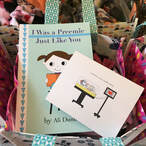 September is Neonatal Intensive Care Unit (NICU) Awareness Month. This month is designed to honor families who have experienced the NICU and celebrate the professionals who care for them. This month is special to me, because I have two miracle babies that spent 55 and 65 days in the NICU. While I feel that every month with my children is a celebration of how amazing the care received from the NICU can be, this month I want to do a little bit more to raise awareness. If you would like to as well, here are 4 ways you can spread the NICU love. Tell Your NICU Story If you have a NICU baby in your life, use this month as a reason to tell the story in person, or online. One of the most prevalent feelings reported by NICU parents is that of loneliness. Hearing another’s NICU tale can really help combat these feelings. Sharing can certainly help someone else, and it might just provide a little healing for you too. Spread the Word Take to social media to spread the word about NICU Awareness Month and organizations that are making a difference like Project Sweet Peas. Project Sweet Peas is a national non-profit organization coordinated by volunteers, that provides support to families of premature or sick infants and to those who have been affected by pregnancy and infant loss. They established NICU Awareness Month in 2014. Make a Donation So many of the organizations that help NICU families are non-profits. A great way to celebrate NICU Awareness Month is by making a financial donation to these organizations. I suggest the Preemie Parent Alliance, a network of organizations offering support to families of premature infants. YOu can make a donation through their website here. Give Back If your baby was in the NICU for 1 day or 100 days, you know how difficult that experience can be. Receiving a small gift or a book to read to your baby while in the NICU can really brighten your day. Consider collecting funds from friends, family, and colleagues, to buy children’s books or personal care products (think dry shampoo, chapstick, snacks, and hand sanitizer) to give to current NICU families. I hope you will join me in celebrating all NICU babies, their families, and the amazing health professionals that care for them this September. "Your babies are not counting the hours and keeping score." The inability to bond with a baby in the NICU is a common concern that many parents experience. Often your time in the NICU with your baby is limited by work schedules, other children at home to care for, and the time it takes to travel to and from the hospital. And if your already limited time is further divided by multiple babies in the NICU, you may be doubting your ability to form a strong, healthy connection. This was a fear I confronted during my twins’ NICU stay. Over the course of the 2 months they were in the hospital I employed several simple strategies that helped me to split my time without sacrificing our bond.
Stagger the Babies’ Care Schedules Once your babies are strong enough you should be able to change their diapers, check their body temperature, dress them and eventually feed them. Ask the nurses to stagger each babies’ schedules so you are able to take part in as much care of each twin as possible. Communicate with your nurses when you plan on visiting the NICU, so care activities can be saved for and completed by you. Keep Babies’ Isolettes Close As long as it doesn’t compromise their care, most NICUs will try to keep siblings close together. For the majority of my twins’ hospitalization, their isolettes were side by side. This made spending time with both of them simultaneously so much easier. Position a comfy chair in between the beds and both babies can benefit from your presence. Simultaneous Kangaroo Care The hallmark of bonding is physical touch. And for NICU babies, this often means snuggling skin-to-skin. Kangaroo care has many health benefits for preemies including stabilizing heart rates, improving oxygen saturation and regulation of body temperature. Whenever possible, I would do kangaroo care with both babies together. They benefited from the cuddles with me as well as each other. Recruit a Holder Occasionally, you may need to provide undivided attention to one baby. When this occurs, recruit a family member, partner, or close friend to come and hold the other baby. Being held by someone who loves them, even if it’s not you is beneficial. Each NICU has different policies, but most allow approved guests to visit. Asking for help is part of being a parent of multiples, so you might as well start now! Use Your Voice There may be times when your babies are not stable enough to be held. At these times, remember the power of your voice. Babies can recognize their mother’s voice at 22 weeks gestation. Hearing a familiar voice promotes attachment, produces a calming effect, and can counteract all the background noise from alarms and equipment. Talk or sing to your babies. You can even record yourself telling a story to play for your babies when you are gone. They love the sound of your voice, even if you don’t. Position yourself between your babies and chat them up. Read Bring several of your favorite children’s books and read to them. Studies show that reading to babies in the NICU reduces stress and aids in brain development. This is another great activity that all your preemies can enjoy together. Music With permission from the medical staff, you can put together a playlist of soothing music. This is useful if you are unable to be with them, or are needing to focus on one baby at a time. Scent An additional bonding tool that doesn’t require your physical presence is scent. Scent can help babies identify and attach to their parents. Many NICUs provide fabric hearts, or a lovey that you can put in your shirt to pick up your unique scent. This is placed in your babies’ beds to cuddle and smell. If your hospital doesn’t provide such a device, ask what you could use that would be safe for your babies. Feeling like there is not enough of you to go around when you have multiple babies in the NICU is understandable. Balancing life, work, family, and sick children is daunting. But your babies are adaptable. Your babies are not counting the hours and keeping score. Do your best to be present with them, whenever you can, and know that what you give them will be enough. |

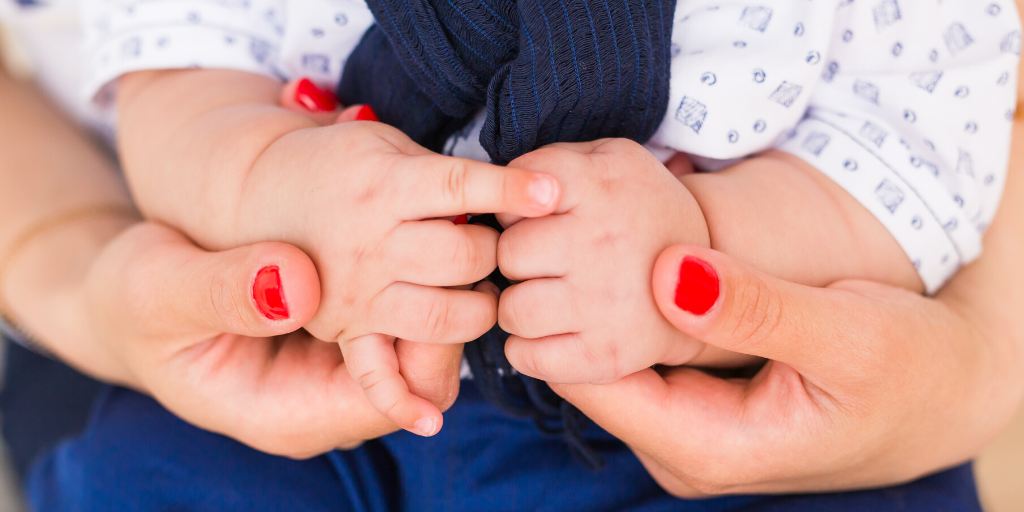

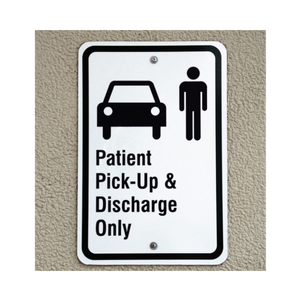
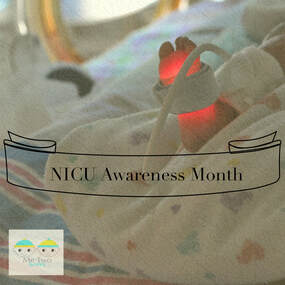
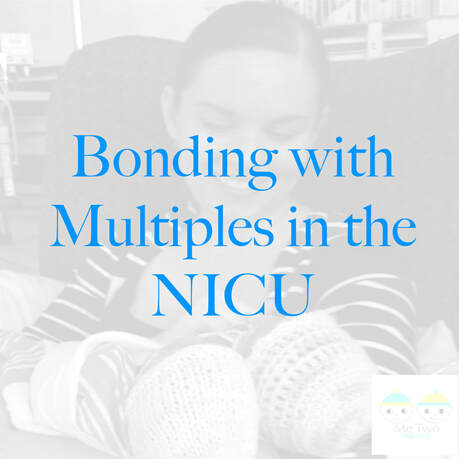
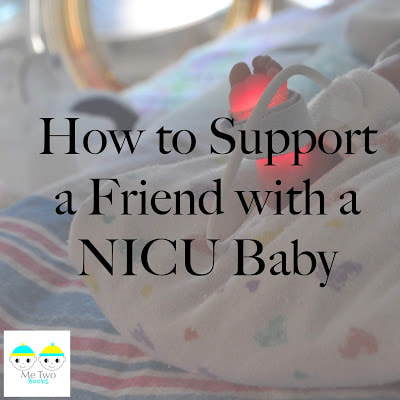
 RSS Feed
RSS Feed